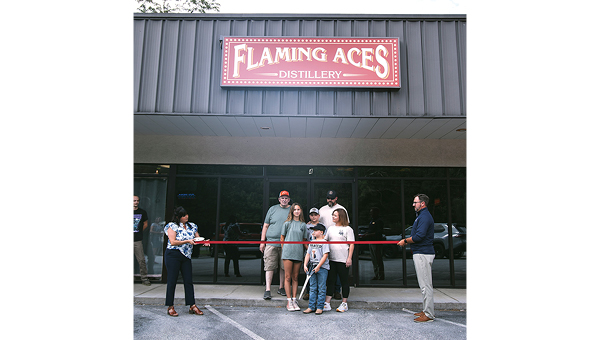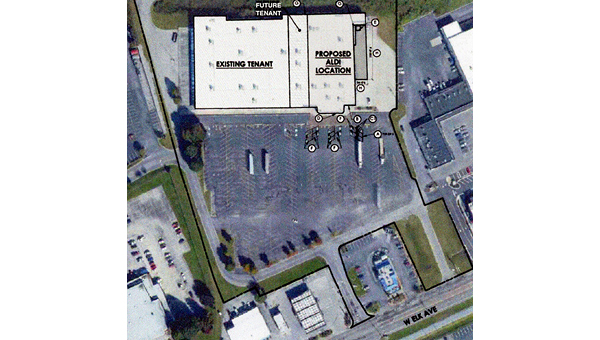Planned car wash meets zoning, site requirements, council told
Published 4:25 pm Monday, September 16, 2024

- File Photo
|
Getting your Trinity Audio player ready...
|
By Buzz Trexler
Star Correspondent
City officials and residents may not think a business is the right choice for a property, but if zoning and other requirements are met, there is little more that can be done but to approve a site development plan, City Council was told during a recent meeting.
“I have had more questions and concerns the last few weeks concerning the Fatz property,” Councilman Richard Barker said, addressing City Manager Daniel Estes and Planning Director Richard DesGroseilliers during Thursday night’s council meeting. Barker said he was aware there was a “situation with the Planning Commission,” and while he did not believe City Council needed to “get involved in private enterprise,” he remained puzzled why a new car wash wanted to locate 1,000 feet from an existing car wash.
Trending
Earlier this month, Elizabethton Regional Planning Commission members were deadlocked when it came to approving the final site plan for RipTide Car Wash. The business would be located on the former site of Fatz Café, 980 Overmountain Drive, after the restaurant building is demolished. The city planning staff recommended approval, but opposition from three commissioners left things unresolved until the October meeting.
“I do know that 20 years ago we worked really hard to get the liquor-by-the-drink ordinance approved so that we can get us upscale restaurants,” Barker said, noting it helped bring in Fatz and Applebee’s. “I’m just wondering from the economic development perspective, should the city be a little more involved in trying to market that property so that it maybe benefits the community a little bit better than another car wash?”
Assistant City Manager Logan Engle responded, saying, “Well, I guess the unfortunate part of that is if we were to do that, it’s under contract, so it’s probably too late. The private market has determined that a car wash is a suitable use.”
Engle said DesGroseilliers conducted an analysis of the existing car washes after the most recent Planning Commission meeting and counted 10. “Seven of them are zoned in the Arterial Business District, which is what the Fatz property—old Fatz property—is currently zoned. Two are zoned M2 Industrial and one is zoned M1 Manufacturing Warehouse,” Engle said, adding that since a car wash is already permitted in the Arterial Business District, it would make it difficult to deny that usage if site-plan requirements are met.
“I know there’s been a lot of concern about that in the community,” Engle said. “But at the end of the day, people who are in business have determined that that is a viable use. It’s really no different with Walgreens and CVS locating on opposite corners of a hard corner of a red light; Home Depot and Lowe’s, they follow each other everywhere that they go.”
“Unfortunately, we just don’t have a lot of control on that unless we own it, which we don’t,” she said.
Trending
Mayor Curt Alexander said even if another restaurant such as Texas Roadhouse, Cheddar’s Scratch Kitchen, or Chili’s bought the property, “They’re going to buy that property and tear it down and build exactly the way that they have their set plan, of course. So that building will be torn down anyway.”
Barker asked what the outcome would be if the car wash developer met all of the requirements and was then denied the usage. DesGroseilliers suggested it would then land on the desk of City Attorney Roger Day.
City Manager Daniel Estes said while his opinion does not matter, “I like restaurants. I’d like to have a restaurant. That’s why I understand that position. But I want to say on staff’s behalf it’s not staff’s place to render an opinion as to the viability or the preference. It’s according to what’s allowed in that zone and whatever that district will permit.”
The city manager said the building and zoning requirements are not completely discretionary, but is a “predetermined set criteria that you walk through,” adding that is the only way to do so in advance.
“I know the public had a hard time with this because I caught it at the barbershop,” he said.
The discussion then turned to what some council members see as a proliferation of storage facilities and whether such property usage could be controlled through zoning.
While Barker did not specify which facility he was referring to, the councilman said building a storage facility is acceptable, but not on a “prime piece of property that would be great for a hotel.” He said the city should guard against underutilization of prime property.
Estes said if the city wants to be “more delicate in where we allow them to be zoned, we can change the rule.”
“But that doesn’t apply retroactively, it applies moving forward, but also it’s fair,” he said. “We can say ‘this is what we want, here’s what we don’t,’ and that’s a decision that we’re making as a government for the benefit of the community.” An equal application of the rule is important, he said.
Engle said she knows it’s a hard discussion to have proactively, but it’s “better to have that conversation before you’re faced with making a decision about development and trying to react to it.” The assistant city manager said the objectivity of the process “reduces risk for developers in our community because they understand clearly when they come into our community what the expectations are for them.”
Day said without an objective application of planning and zoning rules, developers will not come to Elizabethton.





